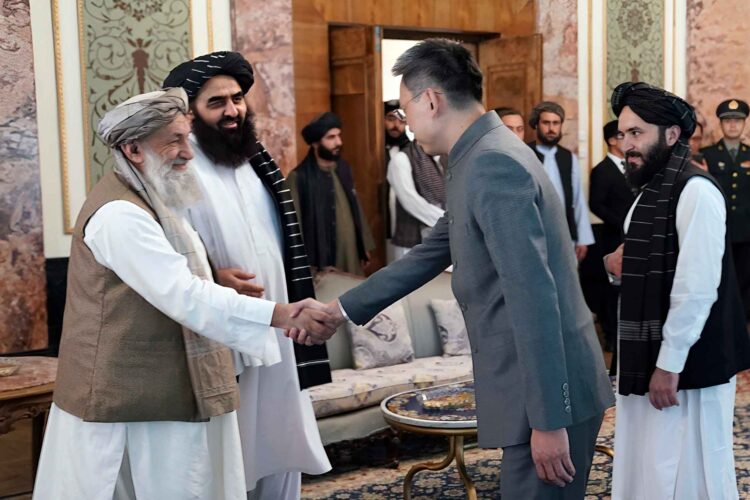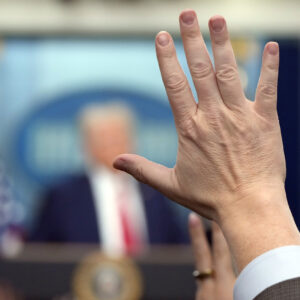The Taliban, the unofficial government of Afghanistan, aims to join China’s infrastructure development “Belt and Road Initiative” (BRI) this week. It sent a team of officials to Beijing to mingle and speak business matters with Chinese statesmen during its summit celebrating the Initiative.
“We requested China to allow us to be a part of the China-Pakistan Economic Corridor and Belt and Road Initiative… (and) are discussing technical issues today,” the Taliban’s Commerce Minister told Reuters.
“China, which invests all over the world, should also invest in Afghanistan… we have everything they need, such as lithium, copper and iron,” Azizi added. “Afghanistan is now, more than ever, ready for investment.”
Several Chinese companies are already operating in Afghanistan, including the Metallurgical Corp. of China Ltd (MCC), which aims to build a giant copper mine. “The Chinese company has made a huge investment, and we support them,” Azizi said of MCC.
Taliban says plans to formally join China's Belt and Road Initiative https://t.co/uRu2XArMiV pic.twitter.com/Yl2TmKDtge
— Reuters (@Reuters) October 19, 2023
Chinese President Xi Jinping is using the summit to draw attention to the BRI as a kind of parallel world economy that could serve as an alternative to the Western system, which is currently dealing with the War in Ukraine and now the Israel-Hamas War. Xi led with a message of unity, cooperation, and global prosperity, and invited Russian President Vladimir Putin to give a keynote address. Putin spoke directly after Xi and praised the trillion-dollar BRI program’s efforts to create a “fairer, multipolar world and system of international relations.”
China has reportedly desired to foster a diplomatic and economic relationship with the Taliban administration since it took power in 2021, despite the fact that no foreign government has formally recognized the Taliban’s legitimacy. In September, China appointed an ambassador to the Afghanistan capital of Kabul, becoming the first country to do so.
The Belt and Road Initiative, sometimes called the “New Silk Road,” is an economic development program run by the Chinese government to expand its trade influence around the globe. Its primary function is to provide loans to developing countries and their industries to build bridges, railroads, ports, and harvest resources. In exchange, China gets to count said countries as economic allies and “debt trap” them into prolonged loan repayment programs, thereby obtaining indefinite influence over them.
Learn the benefits of becoming a Valuetainment Member and subscribe today!
The BRI is part of China’s program for world political domination, and is closely watched by critics as a potential means of military expansion for the ambitious Xi Jinping. In 2013, Xi announced the 21st Century Maritime Silk Road at the Association of Southeast Asian Nations (ASEAN) summit in Indonesia as part of its goal to expand influence over the South China Sea.
(RELATED: China vs Taiwan – What Will Happen if China Invades?)
As of a February 2023, 147 countries have joined the BRI or expressed interest in doing so. Collectively, those 147 countries account for two-thirds of the global population and 40 percent of global GDP. On the BRI list are countries in east Asia, Central Asia, the Middle East, Africa, and even South America.
According to a 2021 analysis of Chinese debt financing contracts with foreign governments, many include clauses that prohibit the client state from having their debt restructured by the ‘Western elite’ or the twenty-two major creditors known as the “Paris Club.” China uses its debt holdings to leverage power over their client states, forcing them to look the other way on questions such as its treatment of Uyghur Muslim and its desire to invade Taiwan.


















Add comment